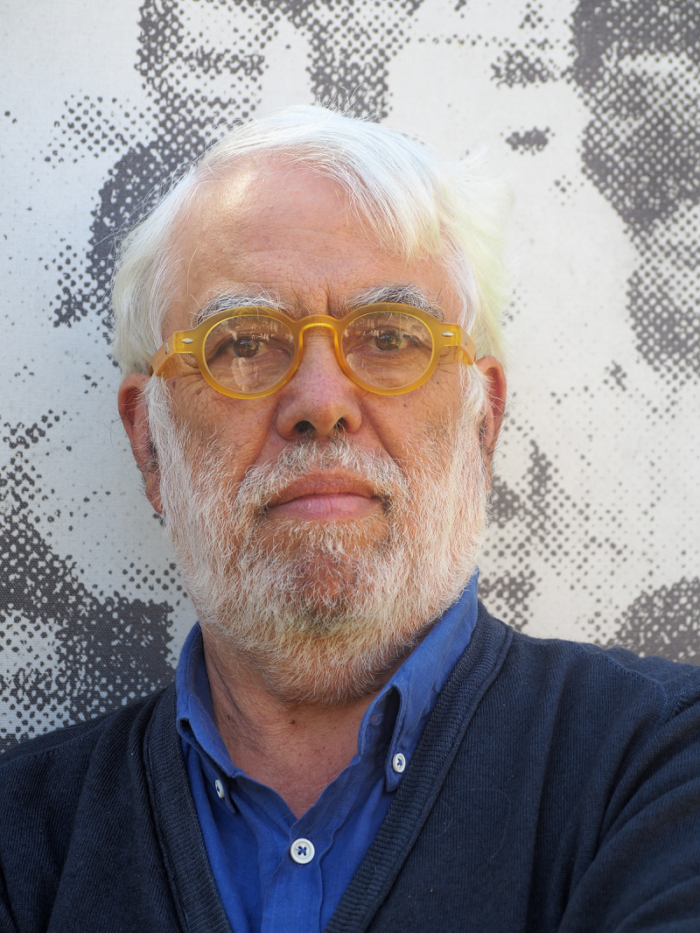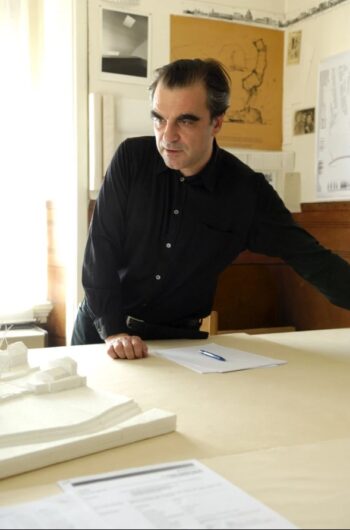A conversation with Arqº Francisco Pinto Basto e Filipa George

A conversation with Arqº Francisco Pinto Basto e Filipa George
"The projects are all done together, right from the concept, where we really value optionality. (...) A project doesn't have one solution, it has several. We advise the option we prefer, but we always offer others"
Tell us a little about the start of your career and what led you to go ahead with LOA_D.
Francisco: At university I had great teachers like the Aires Mateus brothers, Carrilho da Graça and Inês Lobo. Then I did an internship at the studio of architects João de Almeida and Pedro Ferreira Pinto, where I received invitations to interview at international studios, one in Brazil and the other with Norman Foster. The day I met them they asked me if I wanted to start the next day. I asked for a fortnight to get organized and moved to London. It was an incredible experience, with large-scale projects and people who think outside the box. I was an associate and developed, among other things, projects for various airports, one of them from start to finish, which was Panama airport. I returned to Portugal in 2017 and opened Pinto Basto Architecture. I got my first client, then another and another, until I couldn’t do it all on my own. I challenged Filipa to the project of an old-style flat in Rua São João da Mata, which went beautifully, and then we decided to join forces and created LOA_D.
Filipa: We met in London at Foster + Partners. I spent four years there, then went to KPF (Kohn Pedersen Fox Associates), a New York studio with a branch in London, where I mainly worked in offices. I spent two and a half years there and then decided to come to Portugal, to Broadway Malyan Office in Lisbon, where I was an associate and led several hotel, residential and interiors projects. I managed teams in Madrid and Lisbon and developed experience in licensing. At LOA_D we do a lot of residential buildings, but we’re starting to do offices and we’d like to get into tourism and other sectors. We’re working on an allotment project on Avenida Alfredo Bensaúde with Betar. It’s in competition and the experience has been great. We have an official partnership with a Spanish studio, Ortiz Leon, which specializes in sustainability, an area we want to enter in Portugal. We won the Vilamoura Marina competition with them and all the projects we develop at the studio are accompanied by sustainability certifications, which is a credit system and we already have some experience.
What are the main differences between the UK and Portugal?
Francisco: We have spectacular architects, well above average, but in Portugal, largely because of the economy, we’ve been building in the same way for 50 years, technologies have advanced, but everything is still based on concrete and masonry, the evolution hasn’t been huge. People aren’t educated about architecture. In London, people understand the role of the architect and the engineer. The market in Portugal could be more segmented and embracing, but our system is very complex, and bureaucracy slows projects down enormously. We have a project in progress, but we need to grab another one while we wait for the license, then it comes out and we must pick it up again… In terms of planning, it’s terrible. The system must change, architects must play a fundamental role in the process. Only then will we be able to move forward.
Filipa: Now we’re going to have an interesting transition, with Simplex. We’ve gone from having maximum control and scrutiny of projects by local councils to something much freer which is still being tested. It will be interesting to see how the studios adapt, we’re going to have a lot more responsibility, but the delay in the council’s analyzing projects was becoming unsustainable.
What is your creative process like and what prospects do you have for the future of the studio?
Francisco: The projects are all done together, right from the concept, where we really value optionality. Our core is residential now, and we like to give the client several options so that they have the best possible project, within what they want, because they’re the ones who are going to live in the house. A project doesn’t have one solution, it has several. We advise the option we prefer, but we always offer others. We base ourselves on the characteristics of the land and we all go through the concept phase, then we involve the specialties. We lean on each other a lot to make decisions, but we involve the team a lot too. We already have a good portfolio, there are six of us in the office, and our aim is to consolidate to grow, without being too fast. We’ve been growing gradually, the feedback from our clients is positive, we’ve had good acceptance in the market, and we intend to continue doing good projects to gain some scale, but above all to pay attention to our clients.
Filipa: It was very important to have international experience, previous contacts and partners. Our professional life helped us in the implementation phase of the studio. It’s been going well; we’re taking on more projects and we’re excited about entering other sectors. Vilamoura Marina is going to give us some prominence, it’s an important redevelopment that brings us closer to the expertise of the type of work we had from the big studios where we worked.
This interview is an integral part of Revista Artes & Letras #165, july 2024
Partially automatic translation from portuguese: some expressions may differ from their actual meaning.
News & Interviews
A conversation with Eng. Carla Carvalho
'We try to carry out intelligent and preventive management of the condition of the infrastructure, through periodic assessments (...) and thus prioritize the necessary annual investments' Read more
A conversation with Arch. Fernando Bagulho
‘It is necessary to solve the new needs of living, (...) the challenges of teleworking. (...) We still have, as a paradigm of urban housing, models more than one hundred years old (...) that will be necessary to combine with utility housing, an alternative to the workplace.’ Read more
A conversation with Arch. José Neves
‘One of the few certainties I have about architecture is that we should only destroy or replace what we can do better.’ Read more




